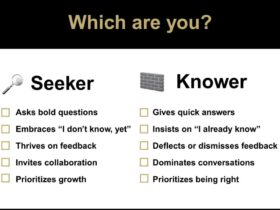
Google reviews, along with a business’s reputation and effective online review management, are vital for success. Online Reputation Management (ORM) strategies help businesses maintain a positive image and build trust with potential customers. Business reviews play a key role in ORM, as they can enhance visibility, improve search rankings, and provide valuable customer feedback.
Understanding Online Reputation Management and Its Importance for Businesses
Online Reputation Management (ORM) involves monitoring and managing how a brand, business, or individual appears online across various platforms. Effective ORM is key to growing a brand, allowing businesses to handle good and bad customer feedback while maintaining their reputation. ORM uses strategies and tools to analyze social media, user-generated content, and reviews from third-party sites, helping to build trust with consumers and boost engagement.
Maintaining an accurate Google Business Profile is crucial for effective ORM. It is free to create and ensures that business information is displayed accurately across Google tools like Search and Maps, enhancing visibility and managing customer reviews effectively.
ORM is essential for businesses because it directly impacts customer satisfaction and retention, giving a brand a competitive advantage. By monitoring feedback from different channels and social media, companies can address complaints, listen to what customers say, and use positive reviews to strengthen their reputation. This proactive approach builds consumer trust and provides valuable insights that can inform business strategies and decisions.
The Importance of Online Reviews
Online reviews have become a cornerstone of consumer decision-making and business success. They serve as social proof, influencing potential customers and shaping perceptions. Whether a glowing recommendation or a critical assessment, reviews are pivotal in impacting everything from brand reputation to search engine rankings.
Why People Write Reviews and Why They Matter
People write reviews for a variety of reasons. Some want to share their positive experiences, while others aim to warn potential customers about negative ones. Reviews also provide a platform for customers to give feedback directly to businesses, helping them improve their products or services. The importance of reviews cannot be overstated. They offer social proof, build trust, and significantly influence purchasing decisions.
According to a study, 91% of consumers read online reviews before buying. Moreover, businesses with more than 82 total reviews earn 54% more annual revenue than those with fewer reviews. This statistic underscores the critical role that reviews play in driving business success.
How Reviews Impact Businesses and Customers
The impact of reviews extends to both businesses and customers. For businesses, reviews are a treasure trove of valuable feedback. They help identify strengths and areas for improvement, enabling data-driven decisions that enhance customer satisfaction. Positive reviews can bolster a business’s reputation, improve SEO, and attract new customers.
For instance, a series of great customer reviews can elevate a business’s profile on Google Maps, making it more visible to potential customers. On the flip side, for customers, reviews offer a platform to share their experiences and help others make informed decisions. They provide insights into what to expect, assisting consumers to avoid pitfalls and choose the best options.
How Can Writing Business Reviews Help with Online Reputation Management?
1. Increases Visibility and Credibility
Online Reputation Management (ORM) can significantly boost a brand’s visibility and credibility through positive reviews. When customers share their good experiences, it enhances the brand’s reputation and builds trust, making it easier for potential customers to choose that business over others. Positive reviews are essential for business owners as they help manage their reputation and drive growth.
By focusing on strategies to promote positive reviews, businesses can also see improvements in their search engine rankings. A survey found that 87% of consumers read online reviews for local businesses, highlighting the importance of these reviews in shaping consumer decisions.
2. Improves Search Engine Rankings
When it comes to search engine rankings, effective ORM makes a big difference. Managing online reviews well can significantly enhance a brand’s SEO strategy. Positive feedback from customers not only builds credibility but also influences potential clients and helps shape strategic decisions. When businesses gather positive reviews on various platforms, it sends a strong message to search engines about their authority, leading to better visibility and a smoother customer experience.
The review feature on platforms like Weave can significantly boost search engine rankings by facilitating the collection of online reviews, which are crucial for improving search rankings on Google. A solid reputation management strategy integrates reviews into its overall approach, driving traffic and fostering strong customer relationships.
3. Builds Trust with Potential Customers through Positive Reviews
One key aim of Online Reputation Management is to build trust with potential customers, and authentically engaging with customer feedback is essential for achieving this.
When businesses respond to reviews—especially negative ones—they show that they care about addressing concerns and value customer input. This engagement helps create relationships that lead to higher customer loyalty and retention. Providing customer review examples can illustrate how detailed reviews build trust with potential customers by offering valuable feedback and fostering transparency.
Being transparent in communication also plays a massive role in shaping how customers view the brand. Thoughtful and honest replies encourage a sense of community among customers. By being authentic, responsive, and proactive in follow-ups, businesses can turn skeptical customers into advocates, ultimately enhancing their reputation and credibility while attracting new customers and keeping existing ones.
4. Provides Valuable Customer Feedback for Businesses
Online reviews are a goldmine of valuable business feedback, offering insights that can help inform decisions and enhance customer experiences. Review platforms play a crucial role in collecting this feedback, allowing users to submit reviews about businesses and their services.
By diving into input from various channels, companies can pinpoint their strengths and identify areas for improvement, creating an ongoing feedback loop that bridges the gap between customer expectations and service delivery. Engaging with customers through their reviews is crucial for turning insights into actionable strategies.
Get started with your free reputation evaluation today
Characteristics of a Great Review
A great review is more than just a star rating; it provides detailed, constructive feedback to help businesses improve and guide other customers in their decision-making process. Effective reviews are specific, balanced, and respectful, offering a comprehensive view of the customer experience.
Provide Useful, Constructive Feedback
To write a great review, providing useful and constructive feedback is essential. This means being specific and detailed, highlighting the positive and negative aspects of a business, product, or service.
Here are some tips for writing a great review:
- Be Specific and Detailed: Provide clear examples of what you liked and what could be improved.
- Highlight Both Positive and Negative Aspects: Balance your review by mentioning what went well and what didn’t.
- Offer Suggestions for Improvement: If possible, provide practical suggestions for improving the business.
- Keep Your Feedback Constructive and Respectful: Avoid personal attacks or inflammatory language.
- Use Proper Grammar and Spelling: Well-written reviews are easier to read and more likely to be taken seriously.
By following these tips, you can write reviews that are helpful to other customers and valuable to businesses looking to improve their offerings. Constructive feedback fosters a culture of continuous improvement, benefiting both the business and its customers.
What are the Best Platforms for Writing Google Reviews?
Finding the right platforms for writing business reviews is crucial for customers wanting to share their experiences and businesses looking to manage their online reputation. Sites like Google My Business, Yelp, and TripAdvisor are among the most popular review platforms for building credibility and engaging with customers, while Facebook offers additional ways to gather feedback.
Popular review platforms play a significant role in customer engagement by allowing users to provide feedback on products or services. These platforms often require account creation and enable frequent reviewers to establish themselves as expert contributors.
Google My Business helps businesses showcase important info and connect directly with customers, boosting local visibility and trust through prompt replies to reviews. Yelp encourages active engagement with customer feedback, fostering community and loyalty, while Facebook allows for meaningful interactions that create a welcoming environment. TripAdvisor can significantly influence potential guests in the hospitality industry, so actively managing reviews there is essential. These platforms can dramatically enhance a brand’s visibility, credibility, and customer loyalty.
How to Write an Effective Business Review?
Be Honest and Specific: Honesty and specificity are key in a business review, as they provide valuable feedback that reflects your experience. Authentic reviews help others make informed decisions and encourage businesses to address issues. Specificity allows potential customers to grasp a business’s strengths and weaknesses.
Include Relevant Details: Incorporating relevant details into your review enhances its usefulness for consumers and businesses. Sharing specific aspects of your experience, such as service quality or product features, helps others understand what to expect. Highlighting standout interactions—like attentive staff or prompt service—adds value. Did an employee go above and beyond to resolve an issue? Were there unique elements of the service that enhanced your experience? Focusing on these details guides customers and businesses in striving for excellence, driving improvement, and meeting customer expectations better.
Use Proper Grammar and Spelling: Using proper grammar and spelling in your business review reflects professionalism and improves the quality of your feedback. Clear and well-structured reviews are easier to read and make a more significant impact. Professionally written reviews are more likely to be taken seriously, benefiting potential customers and businesses. To ensure your review is effective, take a break before revising, read it aloud to catch awkward phrasing, and seek peer feedback. Following these simple practices elevates the professionalism of your reviews and contributes to a more informed community.
Provide Constructive Criticism: Criticism is vital for encouraging positive changes while recognizing what went well. Effective reviews balance praise with suggestions for improvement, helping businesses understand customer complaints and areas needing attention. This approach benefits both the business and other consumers. When offering feedback, highlight what you appreciated, be specific about elements that could be improved, and suggest practical solutions. Using these strategies, your review can be a valuable tool for the business and future patrons, promoting improvements while acknowledging commendable efforts.
How Can Businesses Encourage Customers to Write Reviews?
Encouraging customers to write reviews is essential for Online Reputation Management, as it boosts engagement and creates a continuous feedback loop.
Businesses can motivate satisfied customers to share their experiences through various strategies, such as email notifications, social media prompts, and proactive outreach. Leveraging review platforms can also encourage more customer reviews by providing an accessible and trusted space for feedback.
Directly asking for reviews—whether through follow-up emails, in-person requests, or social media—can significantly impact, especially if done shortly after a positive experience. Offering incentives like discounts or loyalty points can also encourage more reviews, but maintaining authenticity is important. Responding to positive and negative reviews is crucial for fostering trust and showing customers their feedback matters.
Additionally, sharing positive reviews on social media can enhance brand visibility and reinforce consumer trust. By showcasing customer satisfaction, businesses can build a loyal community and improve their online presence.















